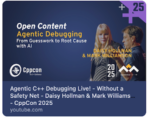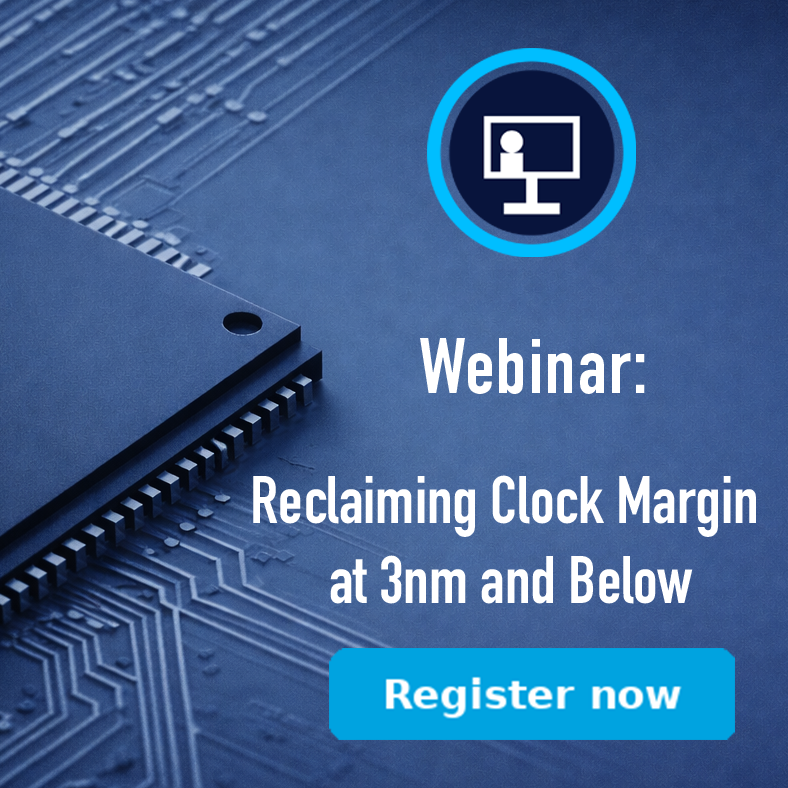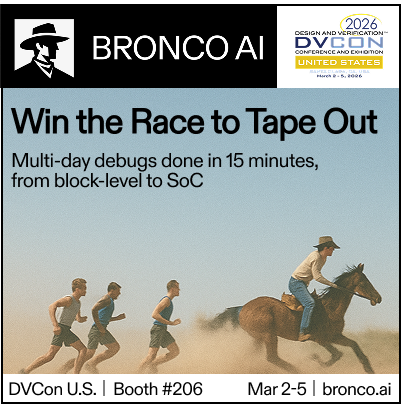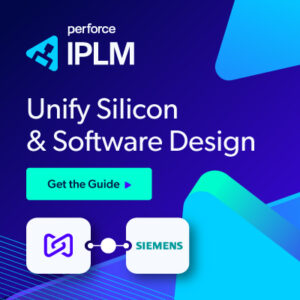In my recent series on quantum computing (QC), I intentionally overlooked a couple of adjacent topics: quantum communication and quantum sensing. These face some of the same challenges as QC, however I noticed a recent report on a test quantum network implemented by Cisco and Qunnect which led me to find more from Cisco on their … Read More
Author: Bernard Murphy
Another Quantum Topic: Quantum Communication
An Agentic Formal Verifier. Innovation in Verification
In a break from our academic-centric picks, here we look at an agentic verification flow developed within a semiconductor company. Paul Cunningham (GM, Verification at Cadence), Raúl Camposano (Silicon Catalyst, entrepreneur, former Synopsys CTO and lecturer at Stanford, EE292A) and I continue our series on research ideas.… Read More
Agentic EDA Panel Review Suggests Promise and Near-Term Guidance
NetApp recently hosted a webinar on Agentic AI as the future for EDA and implications for infrastructure. Good list of panelists including Mahesh Turaga (VP Cadence Cloud) with an intro preso on infrastructure and agentic AI at Cadence, then our own Dan Nenni (Mr. SemiWiki) moderating, Khaled Heloue (Fellow AMD, CAD CAD/Methodology/AI),… Read More
Improving Retrieval Accuracy in AI
While there are big ambitions for virtual engineers and other self-guiding agentic applications, today estimates show 83-90% of AI inferences are for internet searches. On a related note, chatbots are now said to account for nearly 60% of internet traffic. Search and support are the biggest market drivers for automation and … Read More
Bronco Debug Stress Tested Measures Up
I wrote last year about a company called Bronco, offering an agentic approach to one of the hottest areas in verification – root-cause debug. I find Bronco especially interesting because their approach to agentic is different than most. Still based on LLMs of course but emphasizing playbooks of DV wisdom for knowledge capture … Read More
Watch Live Agentic Software Debug
Many moons ago in the Innovation series we explored techniques like spectrum analysis to root-cause bugs. While these methods provide some value they don’t get as close as we would like to isolating a root-cause. In hindsight given what we know about the complexity of conventional debug it is unsurprising that we can’t root-cause… Read More
Beyond Transformers. Physics-Centric Machine Learning for Analog
Physical AI is an emerging hot trend, popularly associated with robotics though it has much wider scope than compute systems interacting with the physical world. For any domain in which analysis rests on differential equations (foundational in physics), the transformer-based systems behind LLMs are not the best fit for machine… Read More
2025 Retrospective. Innovation in Verification
As usual in January we start with a look back at the papers we reviewed last year. Paul Cunningham (GM, Verification at Cadence), Raúl Camposano (Silicon Catalyst, entrepreneur, former Synopsys CTO and lecturer at Stanford, EE292A) and I continue our series on research ideas. As always, feedback welcome.
Looking back at 2025
… Read MoreAgentic at the Edge in Automotive and Industry
It might seem from popular debate around AI and agentic that everything in this field is purely digital, initiated through text or voice prompts, often cloud-based or on-prem. But that view misses so much. AI is already an everyday experience at the edge, for voice-based control, in object detection and safety-triggered braking… Read More
PQShield on Preparing for Q-Day
Following my series on quantum computing (QC), it is timely to look again at what is still the most prominent real-world concern around this technology: its ability to hack classical security methods for encryption and related tasks. Given what I have written on the topic, an understandable counter would be that QC is still in development… Read More




















Advancing Automotive Memory: Development of an 8nm 128Mb Embedded STT-MRAM with Sub-ppm Reliability